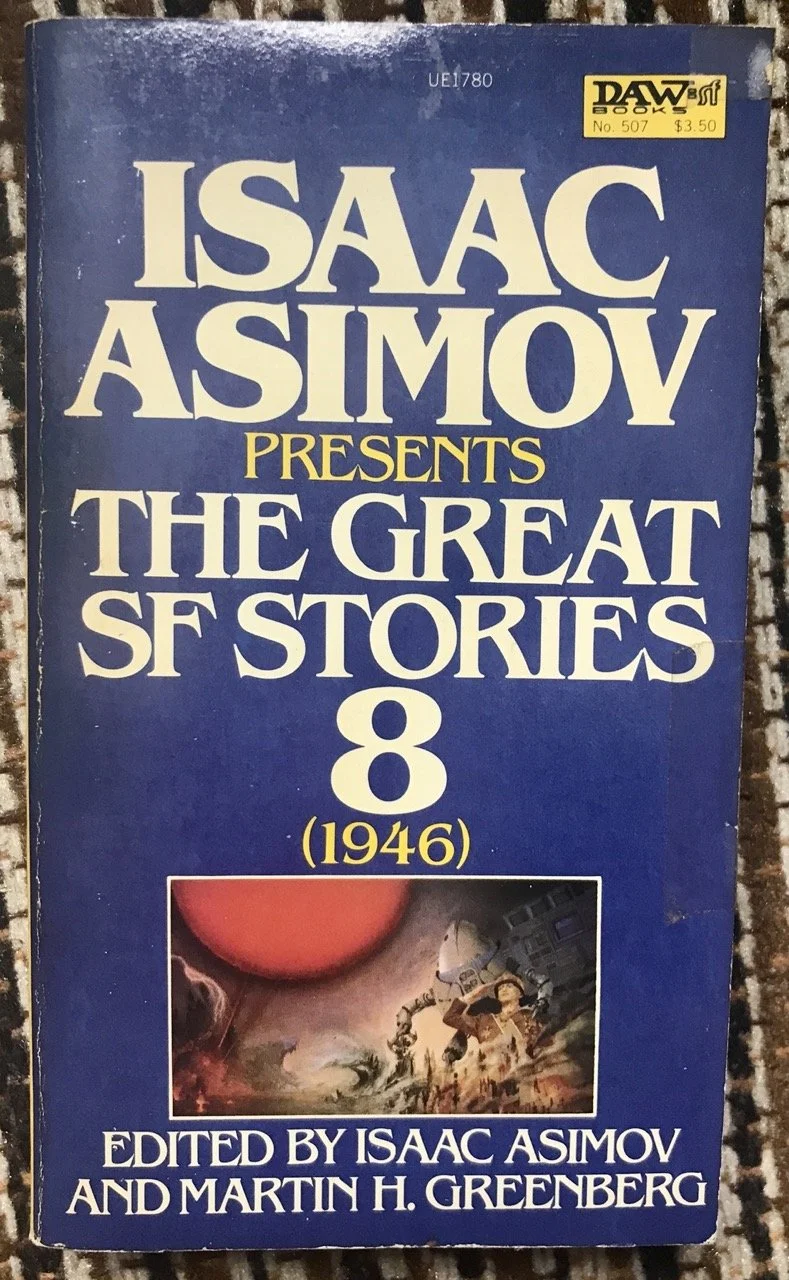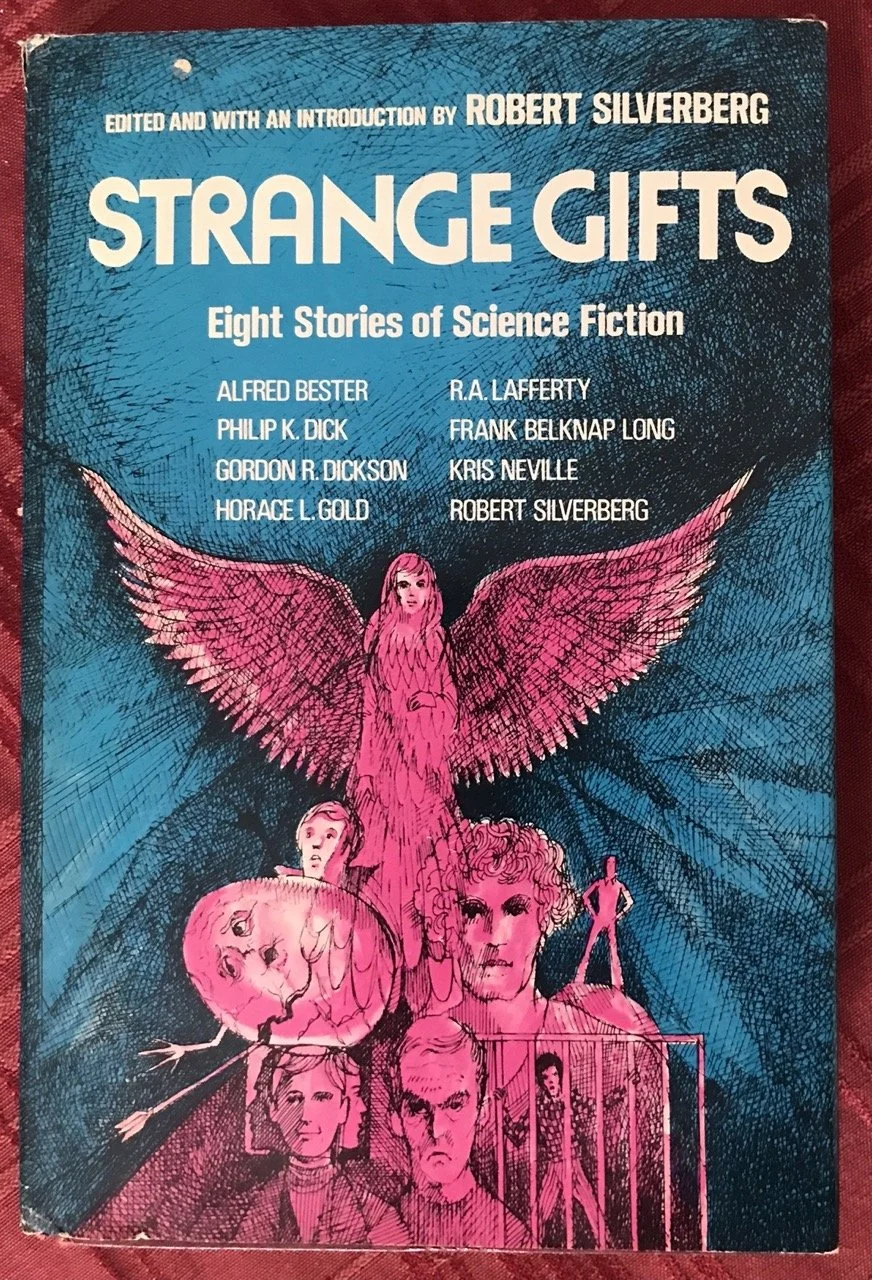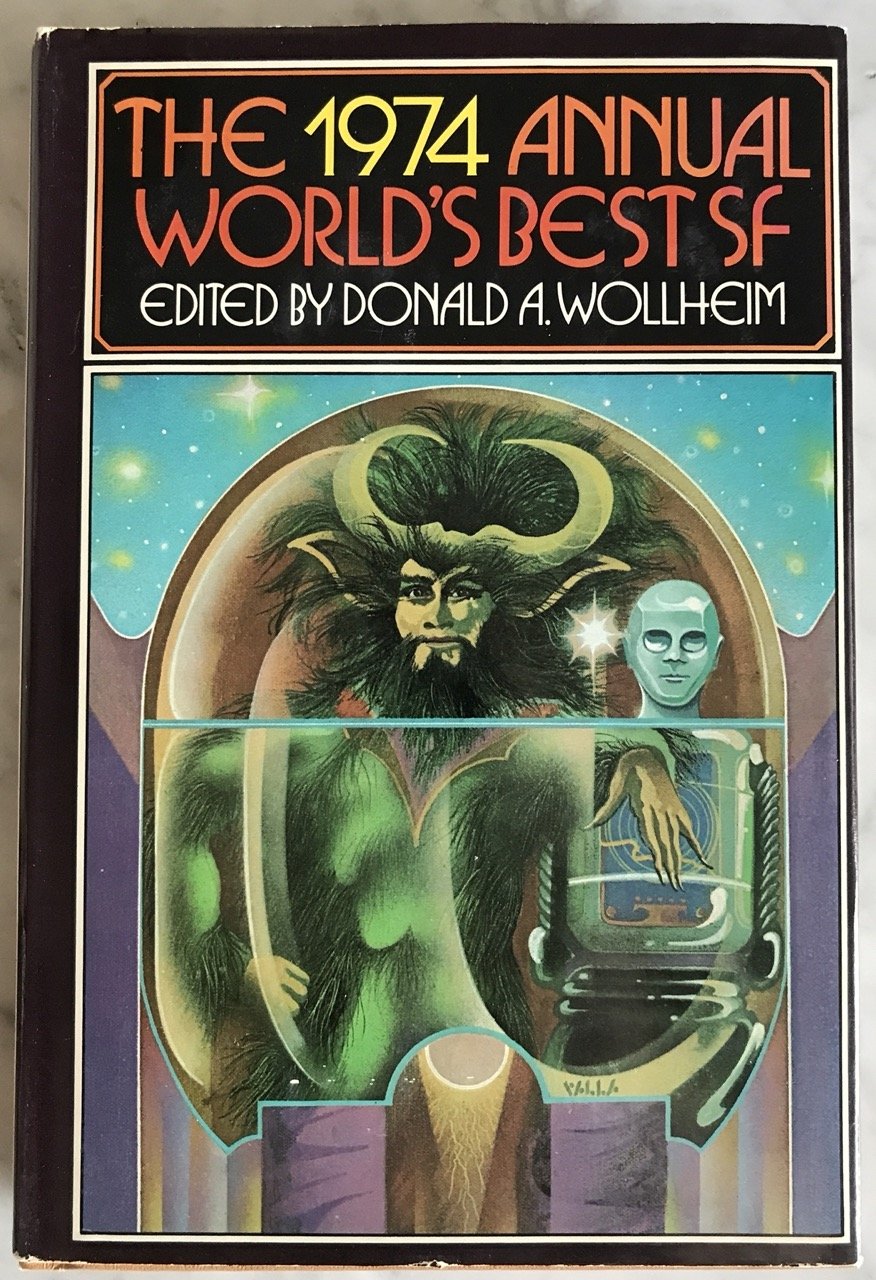The Great SF Stories Volume 8, 1946. edited by Isaac Asimov and Martin H Greenberg
The Great SF Stories Volume 8, 1946
RATED 84% POSITIVE. STORY SCORE 3.88 OF 5
16 STORIES : 4 GREAT / 8 GOOD / 3 AVERAGE / 0 POOR / 1 DNF
World War Two was over, but a scarier peacetime was here. Two Atomic Bombs had been dropped on Japan and Science Fiction writers were obsessing about that in their fiction. It is impossible in 2022 for me to truly appreciate how that impacted the reception of these stories. Well-written SF about atomic war and disaster must have been incandescent to their first batch of readers.
One of the strange things that I noticed when reviewing the books in this series is the difference between the average story and the greatest. Most of the “good” stories tend to be pleasant and be quaint.
Other Volumes of The Great SF Stories - Isaac Asimov & Martin H. Greenberg Reviewed on this Blog
But the Great stories are iconic and some of the finest in the history of the genre:
A Logic Named Joe • (1946) • short story by Murray Leinster [as by Will F. Jenkins]. Logics [which read today as home computers] interconnect every home. An anomaly on the assembly line creates one with consciousness and tries to solve every problem asked of it. But the brilliance of a ‘computer processor’ given access to the world’s information leads to devastating results. Asimov call this prescient in his 1982 introduction, but it is only more applicable to 2022’s world of computers, algorithms, and social media.
The Million Year Picnic • (1946) • short story by Ray Bradbury. One of greatest of all SF. Dad, Mom, and the kids leave their rocket ship for a picnic. They ride on the canals of Mars and explore the ancient and abandoned Martian cities. Meanwhile, the real purpose of their trip is revealed. They are going to show their children some real Martians. Not a wasted word. Sublime. Melancholy, Hopeful. One of Science Fiction’s greatest statements.
Vintage Season • (1946) • novelette by Henry Kuttner and C. L. Moore [as by Lawrence O'Donnell]. A haunting masterpiece that is perfect all the way to the devastating final line. A man is renting an old mansion to very strange people and, in observing them, starts to realize that the situation is weirder and sadder than he could have imagined.
Evidence • (1946) • novelette by Isaac Asimov. The city’s next Mayor might actually be a robot! Asimov’s 3 Laws of Robotics will help solve this mystery.
The Great SF Stories Volume 8, 1946 is rated 84% positive
16 STORIES : 4 GREAT / 8 GOOD / 3 AVERAGE / 0 POOR / 1 DNF
A Logic Named Joe • (1946) • short story by Murray Leinster [as by Will F. Jenkins]
Great. Logics [which read today as home computers] interconnect every home. An anomaly on the assembly line creates one with consciousness and tries to solve every problem asked of it. But the brilliance of a ‘computer processor’ given access to the world’s information leads to devastating results. Asimov call this prescient in his 1982 introduction, but it is only more applicable to 2022’s world of computers, algorithms, and social media.
Memorial • (1946) • short story by Theodore Sturgeon
Good. A scientist wants to make a destructive memorial that would terrify the world against war, but of course governments have other ideas for the technology.
Loophole • (1946) • short story by Arthur C. Clarke
Average. A series of communications between bureaucratic aliens about the danger poses by the acquisition of atomic power by humans.
The Nightmare • (1946) • novelette by Chan Davis
Good. Investigation into an atomic bomb that may be placed in New York City.
Rescue Party • (1946) • novelette by Arthur C. Clarke
Average. As the earth’s sun is going nova, aliens arrived to help rescue humanity. Except, there is no humanity on the planet to rescue. A rather plodding mystery with a nice whip crack of a final paragraph.
Placet Is a Crazy Place • (1946) • short story by Fredric Brown
Good. A bit of humorous SF in which scientists are attempt to do work on a planet where visual representations of everything is completely skewed. There’s a bit of very outdated juvenile romance that will be quaint or wildly offensive, depending your perspective.
Conqueror's Isle • short story by Nelson S. Bond
Good. At the end of WWII, a man finds himself on an island full of superior mutant versions of humanity.
Lorelei of the Red Mist • (1946) • novella by Leigh Brackett and Ray Bradbury
DNF. Sword and Sorcery Fantasy starring Conan who is actually an astronaut who crashed on Venus. Everything I hate and was long, so a quick DNF. Didn’t show any of Bradbury beautiful prose.
The Million Year Picnic • (1946) • short story by Ray Bradbury
Great. One of greatest of all SF. Dad, Mom, and the kids leave their rocket ship for a picnic. They ride on the canals of Mars and explore the ancient and abandoned Martian cities. Meanwhile, the real purpose of their trip is revealed. They are going to show their children some real Martians. Not a wasted word. Sublime. Melancholy, Hopeful. One of Science Fiction’s greatest statements.
The Last Objective • (1946) • novelette by Paul A. Carter
Good. Atomic rockets have made war on the surface untenable, but for the giant machines that tear through the earth, the war continues. Intense and violent military adventure SF.
Meihem in ce Klasrum • (1946) • essay by Dolton Edwards
Good. What might a ‘more streamlined and simplified’ English language look like?
Vintage Season • (1946) • novelette by Henry Kuttner and C. L. Moore [as by Lawrence O'Donnell]
Great. A haunting masterpiece that is perfect all the way to the devastating final line. A man is renting an old mansion to very strange people and, in observing them, starts to realize that the situation is weirder and sadder than he could have imagined.
Evidence • (1946) • novelette by Isaac Asimov
Great. The city’s next Mayor might actually be a robot! Asimov’s 3 Laws of Robotics will help solve this mystery.
Absalom • (1946) • short story by Henry Kuttner and C. L. Moore [as by Henry Kuttner]
Good. A father - who was himself a mutant genius - has a great deal of difficulty acknowledging that his son is a mutant genius of even more capability.
Mewhu's Jet • (1946) • novelette by Theodore Sturgeon
Good. Charming first contact story where a family’s roof is destroyed by a crashing alien. The family starts building a friendship with the alien and learning to use some of the technology to repair the house.
Technical Error • (1946) • short story by Arthur C. Clarke
Average. An accident at the power plant “reverses” a worker. Example: He can’t read unless in a mirror. His cavities are on the other side of his mouth. etc…


